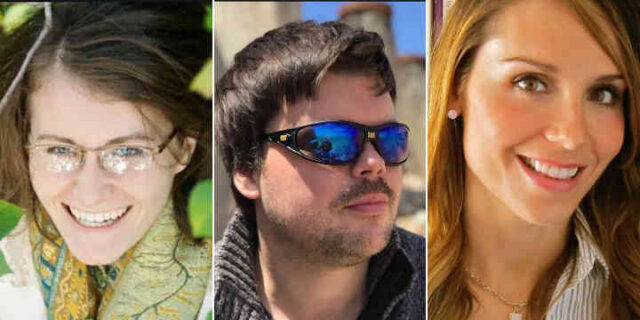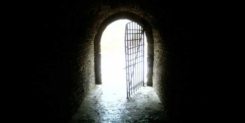Christians are sometimes accused of believing things with no evidence, or even against the evidence. That’s how some atheists define faith.
But while that is undoubtedly true for some christians, as it is for some unbelievers, it certainly isn’t always true. For some christians, it was careful examination of the evidence that led them to believe in the first place.
Faith means no evidence?
Ten or fifteen years ago, atheists were commonly challenging christians (and followers of other religions) over their beliefs, demanding proof and arguing that there was no evidence for any religion. Religious belief is delusional, they said.
It was claimed none of the arguments for God’s existence has any force. Some atheists said they would give up arguing, because it was clear there is no God and no arguments for his or her existence. Others said study of the philosophy of religion shouldn’t be a part of a modern university.
This article, The ‘Best Arguments for God’s Existence’ Are Actually Terrible by biologist Jerry Coyne, sums up the mood back then.
Not now (and not even then)
But the mood has changed. For a start, it seems the atheist-christian “wars” have cooled down and many have lost interest. Public debates, and religious and anti-religious forums and blogs seem to be less popular and less pugnacious. Thankfully, more people on both sides are more willing to share and discuss than argue.
So there are three reasons we should now be wary of these confident statements:
- there is another side to the argument,
- atheists aren’t necessarily more reasonable than christians, and
- some atheists examine the evidence for christianity and find it convincing.
Let’s look briefly at each.
Another side to the argument
The arguments of the high profile atheists (Richard Dawkins, Christopher Hitchens, etc) turned out not to be so good after all.
“Richard Dawkins in The God Delusion would fail any introductory philosophy or religion course. Proudly he criticizes that whereof he knows nothing” said atheist philosopher Michael Ruse. English professor and atheist Terry Eagleton agreed with that assessment.
Atheist-christian debates were very popular, most finding their way onto Youtube so we can assess the arguments. The quality varied, but the christians generally held their own. Christian philosopher William Lane Craig demonstrated logic, evidence and debating ability so that many atheists recognised that he won more debates than he lost – for example, a famous debate with Christopher Hitchens is generally reckoned a significant defeat for Hitchens.
A spate of christian books followed the publication of popular books by the “new atheists”. Not all were good, but they broadly showed that there were two sides to the argument, not just one as Dawkins, Hitchens and the others were claiming. Many theists pointed out that the Dawkins definition of faith was quite inaccurate. God belief was reasonable, they said, even if not provable – after all, atheists believe many things about the world and life that can’t be proved.
Eminent philosopher Alvin Plantinga showed how well a christian could do philosophy. His book Where the Conflict Really Lies: Science, Religion, and Naturalism could be seen by even an atheist philosopher as carrying weight (even if he wasn’t convinced!).
So Dawkins’ claim of a “total lack of supporting evidence” for God belief is clearly an opinion, and an exaggeration at best. Many smart people differ.
Are atheists more rational than christians?
There seems to be some support for this. Psychologists say we all use two modes of thinking. Intuitive thinking is fast and uses thinking shortcuts (heuristics), while analytical thinking uses a slower process of reasoning.
Studies show that atheists are more likely than christians to use analytical thought, which is generally believed to indicate a more rational mindset. Intuitive thought is likely to lead to religious belief.
But there’s more to it than that.
Our minds have evolved so that intuitive thinking is our normal mode. It is the most efficient way to think – we simply cannot afford to have our minds analysing every thing we do. And for complex matters, especially those that involve emotion or risk, it gives better results. So while analytical thinking is necessary for careful science, it may not be best for making decisions about ethics or religion.
In the end, we need a mix of both modes of thinking. Scientists often report a flash of insight (intuitive thinking) that gives them the big new idea they were looking for, followed by the painstaking work of the scientific method (analytical thinking) to prove the new idea. And some psychologists say that we make all our ethical, religious and aesthetic decisions intuitively then justify the choice later by analytical thinking.
It seems too that atheists can be just as prone as believers to “group think” and following charismatic opinion leaders without much thought.
So it isn’t nearly as clear as sometimes claimed that atheists are thinking any more logically than christians.
Some atheists examine the evidence – and convert
All this can be illustrated in the lives of three thoughtful atheists who converted. I have written about some of their lives in Converted by evidence and “The implications of my atheism were incompatible with almost every value I held dear”.
Jordan Monge
Jordon was sceptical as a child, saw herself as an atheist by age 11, and argued against christians at high school. She went to Harvard and had long discussions there with a thoughtful christian.
For her, the strongest arguments for God’s existence were the difficulty of accounting for her strong ethical beliefs without God, and the difficulty of explaining the universe’s existence without some external cause.
She read everything she could find on the truth of christianity – both believers and atheists. In the end, she found the evidence for christianity was strong, so she changed her belief. She said: “When confronted with the overwhelming body of evidence I encountered, when facing down the living God, it was the only rational course of action. …. never once did I have to sacrifice my intellect for my faith”.
Peter Byrom
Peter had a christian upbringing, but university life led him to reject his rather nominal faith and to embrace both atheism and a hedonistic lifestyle. Richard Dawkins’ The God Delusion had a big impact on him. He especially resonated with Dawkins’ view that religious faith was “belief without evidence”. He also appreciated Christopher Hitchens.
But in his quest to better argue the case for atheism, he began to read christian apologists too, notably John Lennox and William Lane Craig. He especially appreciated how Craig set out his arguments in logical form, with clear premises and conclusions. He wished Dawkins would set his arguments out as clearly, and when Dawkins toured UK, Peter publicly asked him to debate Craig, but Dawkins declined.
Peter felt let down by this, and after about six years of investigating the two rival viewpoints, decided that christianity was based on better evidence.
Sarah Irving-Stonebraker
Sarah grew up as a secular humanist, obtained brilliant results in her history degree in Australia, and won a scholarship to do her PhD in history at Cambridge. After her degree she began research at Oxford University, where she was able to attend lectures by Aussie philosopher Peter Singer.
She found some of Singer’s ethical views challenging to her ethical humanism beliefs. She knew she needed to think through her ethical basis, and began to read some philosophical theology. She came to see that that theism supplied a basis for true ethics that her atheism couldn’t.
This wasn’t enough to push her to convert, but a new job gave her the opportunity to observe a bunch of christians caring for the poor and disadvantaged. This was another step towards belief, as she saw the practical outcome of christian ethics. Finally she decided to visit and church, and there she felt overwhelmed by God’s love.
So evidence and logic started her on a course that led her to believe.
Christians and evidence
So it seems that most people make most choices fairly intuitively, based on a limited amount of evidence, and christians are no different. There are many ways to know things, and evidence and reason are only one of them.
But for some christians, as for some atheists, evidence and logic are very important. Some christians “deconvert” because of how they see the evidence, while some atheists convert because of the evidence.
The whole situation is more complex than some people say.
Photos taken from Jordon Monge’s blog, Peter Byrom’s Twitter and University of Western Sydney via The Veritas Forum





Hi. I just wanted to say that I really appreciate your blog. I’m, I suppose, what one would call an agnostic (I certainly hope there’s a god, but don’t want to just convince myself, I want to know all the arguments and be as analytical as possible) and have found myself pondering those very typically human questions. I find your blog very honest and am delighted by your own analytical style and your tendancy to provide multiple views on any given subject. I also find your willingness to admit doubt on any line of thought on any given subject truly liberating to see ( I’m always find myself doubting pretty much anything I want to stand for be it politics, philosophy, or scientific positions and would rather cherish that then loathe it).
Keep on sharing your amazing thoughts and know that I for one am always eager to read this blog.
Take care out there!
AJ from the UK
Hi Aaron, thanks for the encouragement, it really means a lot to me.
When I started this website I made a few decisions about how it should be. You have touched on some of the choices I made – to try to present both sides, to be fair to those I disagreed with, to try to be honest about the evidence and to admit uncertainty. So it is pleasing to think that I might have achieved this to some degree.
I’d be interested to hear which issues you find most interesting and most difficult to assess.
Eric